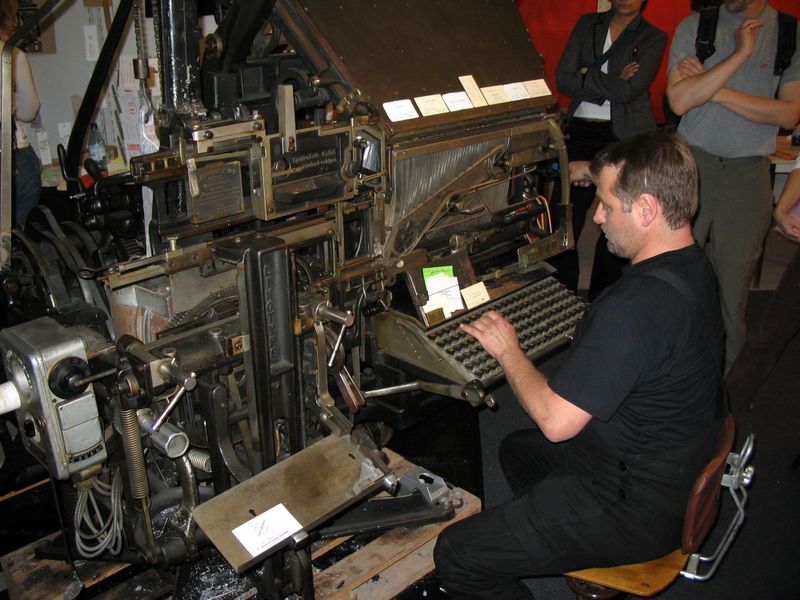| Title: |
Computers in Publishing - 40 eventful years
A joint meeting with the Electronic Publishing Specialist Group |
| Speaker: |
David Penfold, Conrad Taylor, and David Brailsford |
| Date: |
17th January 2008 |
| Time: |
14.30 Room open in advance (from 14.00) – meet up with society members. |
| Location: |
Fellows Library of the Science Museum, Exhibition Road, London, SW7 2DD |
|
 |
About the talk
Virtually all printed publications are now prepared using computers, a process that started in the 1960s with the advent of the first computerised typesetting machines – and in the following decades, typesetting and interactive page make-up systems based on the personal computer. The speakers at this seminar will review the intermeshed developments in technology, coding systems, human-computer interfaces, standards and page description languages that have led to the world of computer-assisted print publishing of today.
First, Dr David Penfold will describe the evolution from proprietary languages for controlling particular typesetting machines to the generic-coding systems of SGML and XML – developments which en route also brought us the World Wide Web.
Conrad Taylor will speak from the point of view of the publication designer/production worker, about the evolution of digital type design, typesetting and page make-up software: through the Desktop Publishing revolution of 1985, to the composition and page make-up systems in use today.
Finally, Prof. David Brailsford will talk about the crucial role of Adobe's PostScript page description language in bridging the gap between the designer's computer and the printer's pressroom, and the later development of the Acrobat PDF format, in widespread use for electronic document interchange.
The talks will be followed by discussion on the topics raised.
This is a joint event with the Electronic Publishing Specialist Group of the BCS (EPSG). For more details about the EPSG – click here
About the speakers . David Penfold, Conrad Taylor, and David Brailsford
Dr David Penfold is a Senior Lecturer at the London College of Communication, University of the Arts London. He teaches the digital media units of the Publishing MA course and is also the academic supervisor for several Knowledge Transfer Partnerships, all of which have as their core aspects of content management and XML. David was previously Chair of the Electronic Publishing Specialist Group of the BCS and also chaired the BCS Web Content Working Party in 2002
David Penfold began his publishing career editing journals that were set in hot metal. Subsequently, he was involved in the proposal to set up an in-house typesetting system for these journals. This was eventually abandoned for financial reasons unconnected with the project. In the mid 1980s David moved on to run a small company carrying out the data conversion (using Unix utilities such as Lex and Awk) for some of the first typesetting from floppy disk and magnetic tape. This included The Revised English Bible from about 120 hard-sectored AES word-processor floppy disks, each containing about 100 kbytes of data! Subsequently, he was a freelance consultant, editor and project manager, managing the Electronic Journals on SuperJANET project in 1993 and advising a number of publishers on production, content management and SGML. These included The Lancet, Macmillan Journals and Helicon, publishers of the Hutchinson Encyclopedia.
Conrad Taylor is an information design and electronic publishing trainer and consultant, with a background originally in publication and publicity design. He is currently the Chair of the Electronic Publishing Specialist Group of the BCS.
Prof David Brailsford is the John Dunford Emeritus Professor of Computer Science at the University of Nottingham. His interest in computerised typesetting began in 1982 when he led a project to enable the University to typeset all of its examination papers `in house' using the UNIX troff suite, running on a PDP11, and driving a Linotype 202 typesetter. During this talk he will describe how this project led to a 25 year research career in digital documents and to a long-term research relationship with Adobe Systems Inc.
Click
 to see a podcast of this event.
to see a podcast of this event.
|
|
|
|
